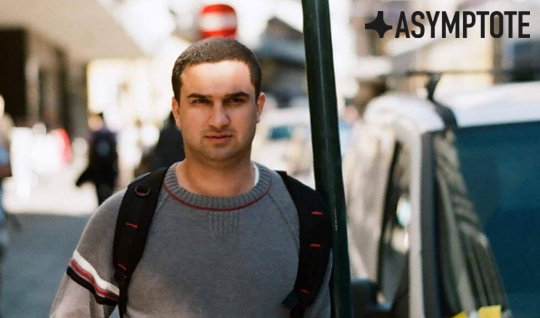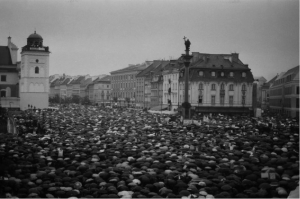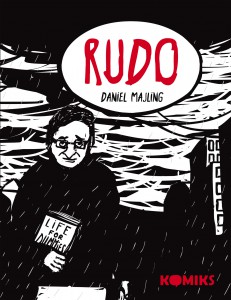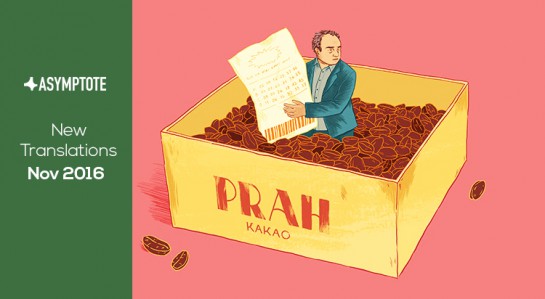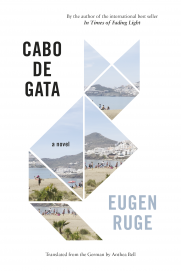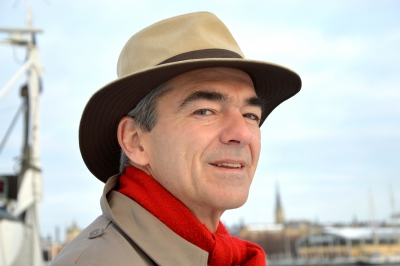Born in Lund, Sweden, Ida Börjel is one of the most radical voices in contemporary conceptual poetry. Since her multiple award-winning debut collection Sond (Probe, 2004), Börjel has been investigating the current conditions of our world, raising questions such as ”Why do we walk in circles when we are lost?”, and, ”what is a waist measure of nationalistic characters?” Her poetry absorbs and reinvents language from consumer law, juridicial clauses, racist radio, political pamphlets and other sprawling sources to expose our contemporary, linguistic, and societal circumstances in relation to various forms and systems of power and authority. Her collection Miximum Ca’Canny the Sabotage Manuals (Commune Editions, 2016) is available to English-language readers in the translation of Jennifer Hayashida. Hayashida is working on a forthcoming translation of Ma, Börjel’s most widely-acclaimed book, which received many awards in the original, including the prestigious Erik Lindegren prize and Albert Bonnier’s poetry prize.
Asymptote‘s Sohini Basak caught up with the poet over email last month.
Sohini Basak (SB): In your collection Miximum Ca’Canny the Sabotage Manuals, a collective of industrial workers’ voices confound and sabotage capitalist machinery and “the boss” in various ways, including providing instructions for what to do when they “cutta da pay”: hide paperwork, peel off labels, forget tools, embrace slowness, hold meetings, ask questions—it’s a very real and fascinating interaction between materiality and ownership of language. I’m interested in the blueprints of this collection. Where did you begin?
Ida Börjel (IB): It began, I guess, with that old question about free will, about akrasia and how we might come to deviate from a given pattern. What compels a person to step across the threshold, out on the piazza, into action? Or to activate a gesture of refusal, discontinuation, or silence? And, in addition, the question I’ve been dragging along in my writing since day one: How, in what kind of language, can I think differently about a system of which we are a part? In which we are apart?
So, in pursuing those questions, I conducted a minor survey of sabotage in time and space, from above and below, inside and out: from Elisabeth Gurley Flynn and her 1916 pamphlet ”Sabotage: The Conscious Withdrawal of the Worker’s Industrial Efficiency,” to—still in the U.S. but directed overseas—the OSS (a predecessor to the CIA) pamphlet ”Sabotage: A Simple Field Manual,” which suggests the ”citizen-saboteurs” in France and Norway during WWII issue two tickets for one seat on the train in order to set up an ”interesting” argument, just to name example. It also states that ”purposeful stupidity is contrary to human nature,” so the citizen-saboteur ”frequently needs pressure, stimulation or assurance.” From there, I I looked at contemporary workers in the textile industry in Pakistan or the closing of an Ericsson factory in Gävle, Sweden, in 2009, and many others—there are pamphlets, diaries, blog texts, conversations, memories to sift through. There is much to be found and read out there, though there are sources that need to stay anonymous.
SB: That’s very immersive … and once you had points of references, memories, material, how did you map it all out?
IB: What seemed urgent to me in rewording and sampling texts from these various sources was not a simple whodunnit, but rather, how does one find and pick up that ”fine thread of deviation,” as Gurley Flynn puts it, in the present order of things? In the factory or at the office, yes, but also in factory life outside of the factory. In the prevailing social structures, in our daily lives… Do we speak, think, write, like in a factory? Leslie Kaplan, author of Excess– The Factory, asks this.
READ MORE…

